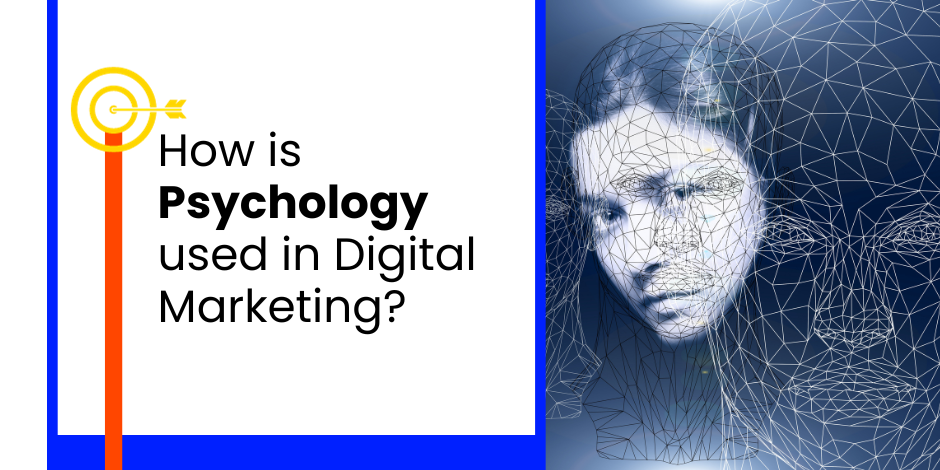How to Use Psychology in Digital Marketing

Stay Informed With Our Weekly Newsletter
Receive crucial updates on the ever-evolving landscape of technology and innovation.
In today’s digital age, marketing has evolved into a dynamic field that goes far beyond traditional advertising.
The rise of online platforms and social media has given marketers unprecedented access to consumers.
However, with this increased access comes the challenge of capturing and maintaining the attention of the ever-elusive online audience.
This is where the role of psychology in digital marketing is crucial.
Understanding the intersection of psychology and digital marketing

At its core, digital marketing is about understanding consumer behavior and using that knowledge to create effective marketing strategies.
This is where psychology in digital marketing comes in.
By studying the way people think, feel, and make decisions, marketers can tap into psychological triggers that influence consumer behavior.
Psychology provides marketers with valuable insights into why consumers make certain choices, but how exactly does it impact digital marketing?
Let’s take a closer look.
The importance of psychology in digital marketing
Psychology in digital marketing helps marketers understand the underlying factors that drive consumer behavior.
Studying psychological theories and concepts allows marketers can gain a deeper understanding of why consumers make certain choices and how they can influence those choices.
For example, one important aspect of psychology in digital marketing is the concept of cognitive biases.
These biases are inherent mental shortcuts that people use to make decisions quickly.
By understanding these biases, marketers can design their campaigns to align with these cognitive shortcuts, making it easier for consumers to make purchasing decisions.
Additionally, psychology in digital marketing reveals the emotional aspect of consumer behavior.
Emotional marketing campaigns are highly effective in capturing attention and driving consumer engagement.
Furthermore, psychology in digital marketing allows advertisers to segment their target audience effectively.
By understanding different personality traits and psychological characteristics, marketers can create tailored marketing messages that resonate with specific groups of consumers.
This level of personalization can significantly improve the effectiveness of marketing campaigns.
The power of emotions in consumer behavior
Emotional appeals can tap into consumers’ desires, fears, and aspirations, making them more likely to engage with a brand or make a purchase.
By creating emotionally resonant content and advertisements, marketers can leave a lasting impact on consumers, leading to increased brand loyalty and customer engagement.
The role of color psychology in branding
Color psychology plays a crucial role in branding. Different colors evoke different emotions and can shape the way consumers perceive a brand.
For example, the color blue is often associated with trust and reliability, while red can evoke a sense of urgency or excitement.
By strategically selecting colors in branding materials, marketers can influence consumers’ perceptions of their brand and create a strong visual identity.
Applying psychological theories to digital marketing strategies

Incorporating psychology in digital marketing strategies can greatly enhance their effectiveness.
The use of social proof in online marketing
Social proof is a powerful psychological concept that can be utilized to boost online marketing efforts.
According to a study by Murphy in 2020, at least 91% of consumers between the ages of 18 and 34 revealed that they trust online reviews as much as they trust personal recommendations.
By showcasing positive reviews, testimonials, and social media engagement, marketers can build trust and encourage potential customers to take action.
The scarcity principle in digital advertising
The scarcity principle positions a product or offer as limited in availability, creating a sense of urgency and increasing demand.
Limited-time offers or exclusive deals can drive sales and motivate consumers to make a purchase, knowing that they may not have the same opportunity in the future.
This allows marketers to tap into consumers’ fear of missing out (FOMO) and drive them to take immediate action.
The ethical considerations in using psychology in digital marketing
While psychology in digital marketing is a valuable tool, it is important to consider the ethical implications of its use.
Balancing persuasion with ethical responsibility
While marketing aims to persuade consumers, it is crucial to do so ethically and responsibly. This means being transparent, honest, and respecting consumer privacy.
Marketers must ensure that their strategies and tactics align with ethical guidelines and do not exploit or manipulate consumers.
The potential risks and backlash of psychological manipulation
When using psychology in digital marketing, there is a risk of crossing the line into manipulation.
Marketers must tread carefully, as unethical practices can lead to backlash and damage the reputation of a brand.
Building trust and maintaining transparency are key factors in avoiding the negative consequences of psychological manipulation.
The future of psychology in digital marketing

As technology continues to advance, the role of psychology in digital marketing is likely to become even more significant.
The rise of personalized marketing and psychology
Personalization is already a growing trend in digital marketing, and psychology will play a crucial role in its further development.
By leveraging data and consumer insights, marketers can create tailored experiences that resonate with individual preferences and motivations.
Predictive analytics and consumer psychology
Predictive analytics, combined with consumer psychology, holds immense potential for digital marketers.
By analyzing consumer behavior patterns and preferences, marketers can anticipate needs and deliver targeted messages and offers to increase conversion rates and customer satisfaction.
Conclusion
The role of psychology in digital marketing is varied and constantly evolving. By understanding the intersection of psychology and marketing, marketers can create ethical strategies that resonate with consumers on a deeper level.
The future of digital marketing will undoubtedly see further integration of psychological theories and advancements in technology, leading to even more impactful marketing strategies.
Are you ready to launch your career in digital marketing?
If so, we encourage you to explore the Institute of Data’s Digital Marketing & Artificial Intelligence program.
Alternatively, we invite you to book a complimentary call with a member of our team to discuss the Digital Marketing program in more detail.




